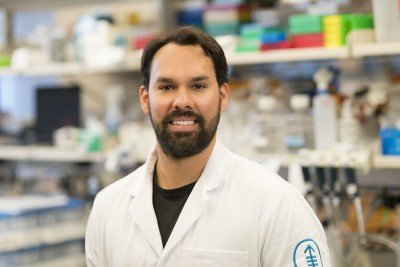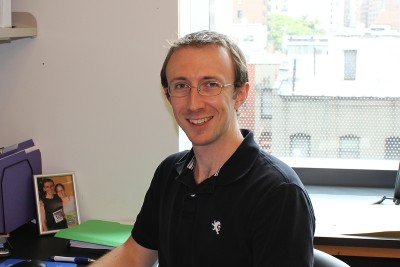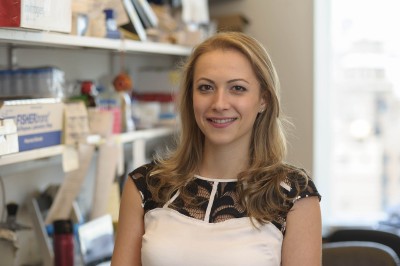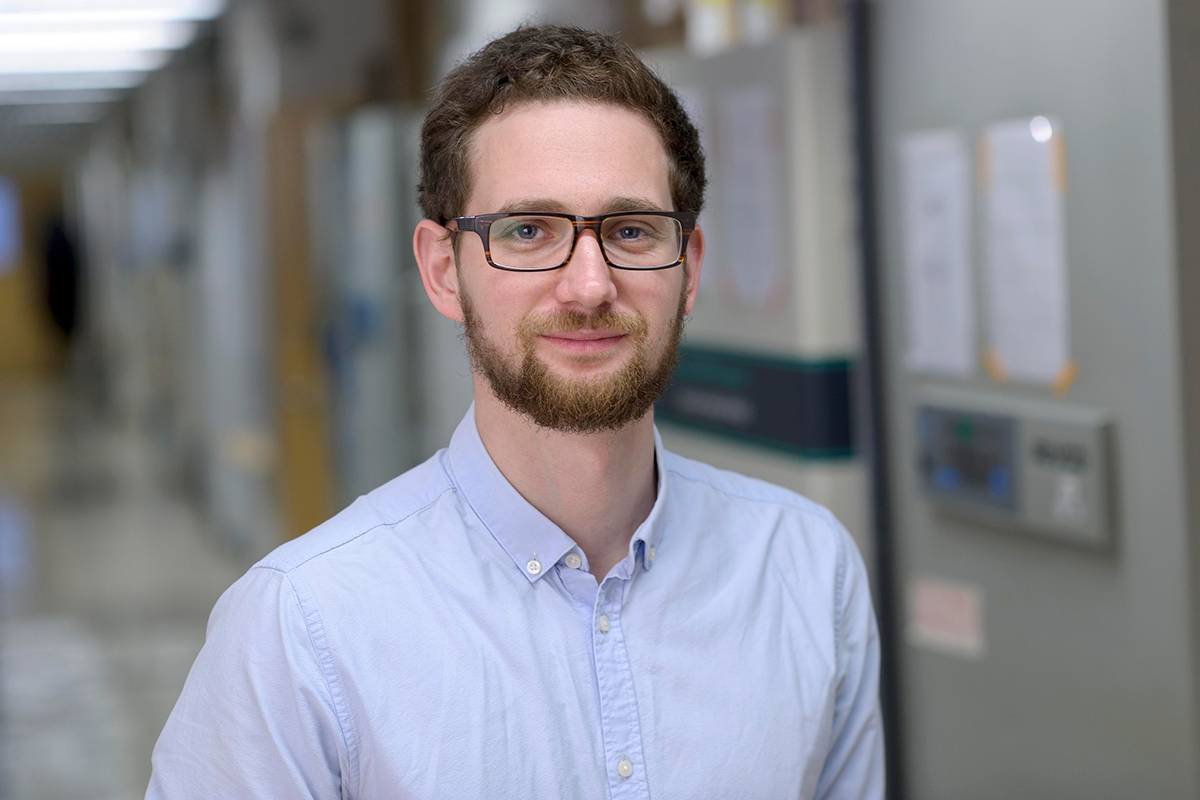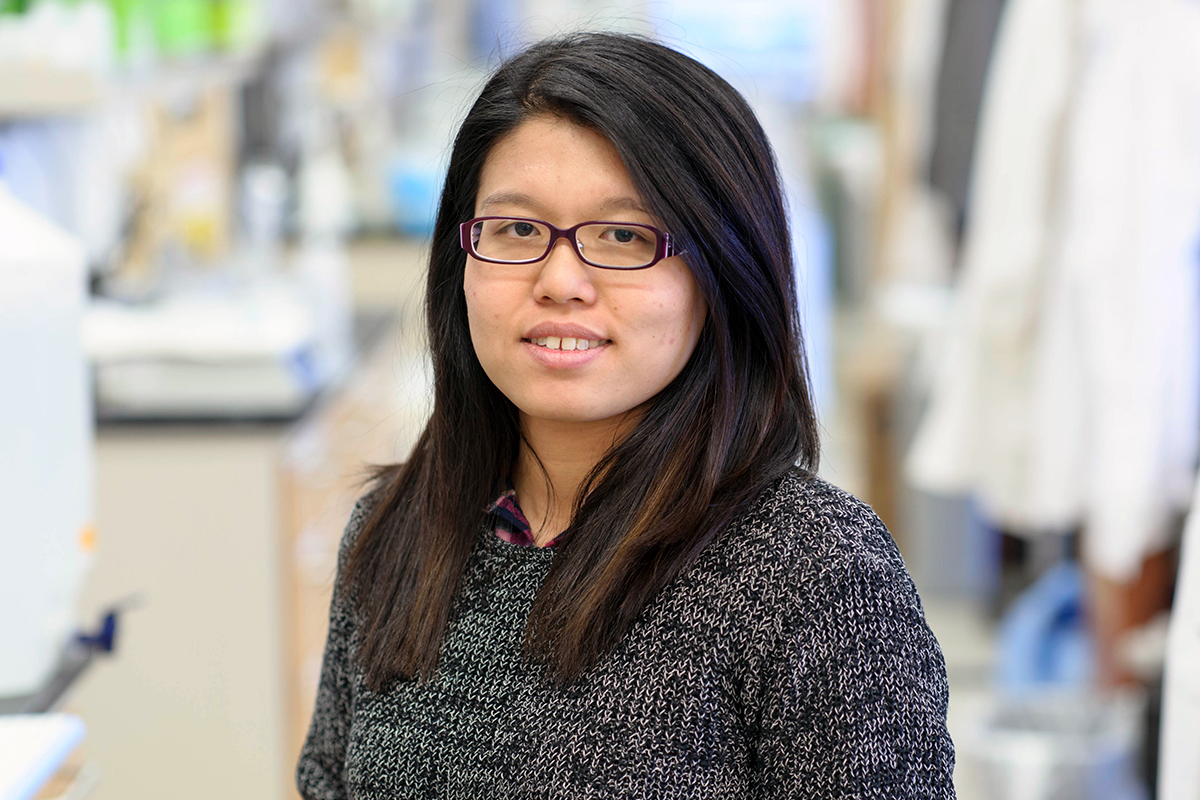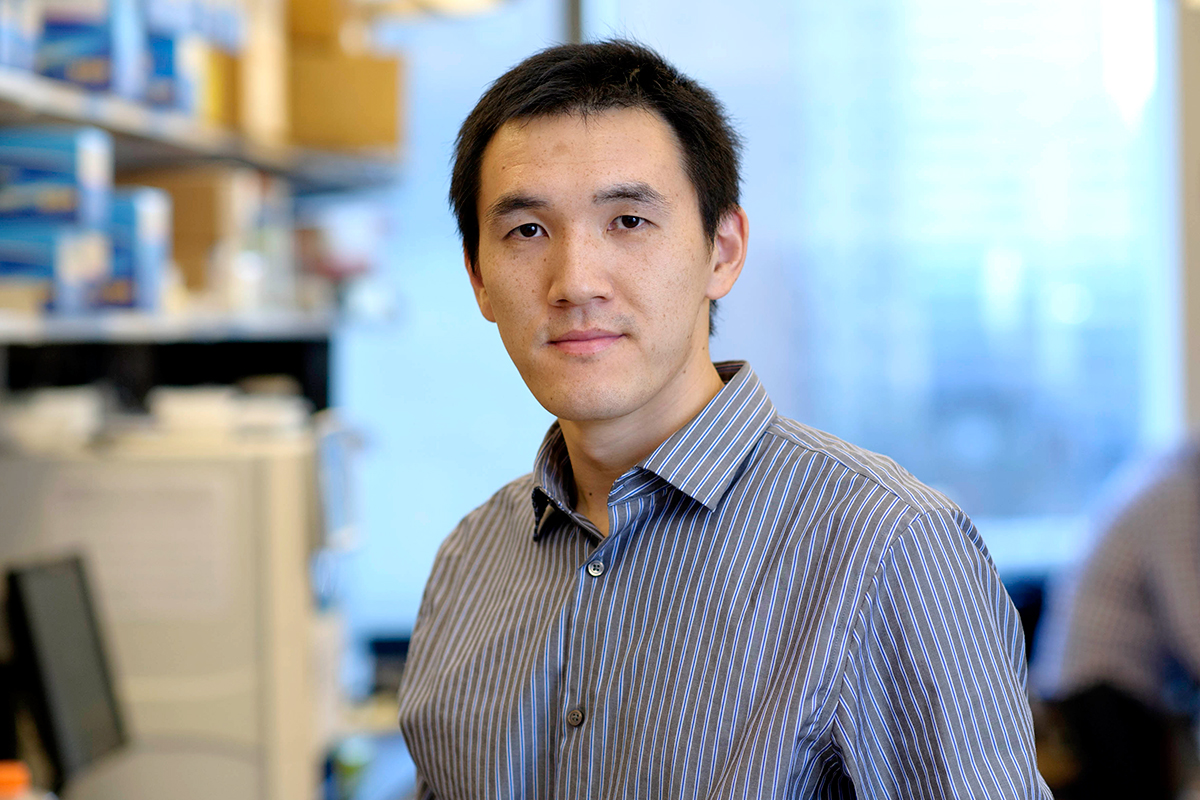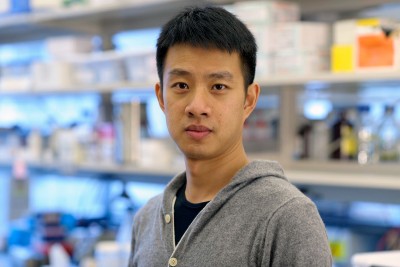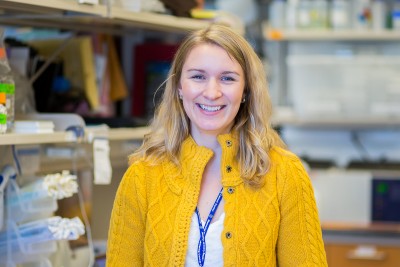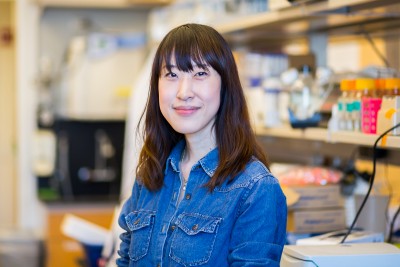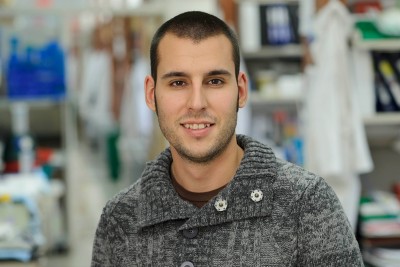Mahesh Saqcena, PhD
The major focus of my research is to determine the role of epigenetic alterations in thyroid tumor progression and assess its impact on targeted therapies. Mutations in SWI/SNF chromatin remodeling complex have been found in ~20% of all human cancers. In thyroid cancer, mutations in SWI/SNF subunits track with tumor virulence: i.e., they are present in 1% of papillary thyroid cancers (PTC), 6% of poorly differentiated thyroid cancers (PDTC) and 36% of anaplastic thyroid cancers (ATC). To investigate the role of Swi/Snf chromatin remodeling complex in thyroid tumor progression, we generated mice with thyroid-specific loss of individual Swi/Snf subunits – Arid1a (BAF subunit), Arid2 (PBAF subunit), or Smarbc1 (core subunit of all BAF and PBAF subunits) – either alone or in the context of endogenous BRAFV600E expression. Our findings in genetically engineered mouse models suggest that loss of Swi/Snf subunits with coexistent oncogenic Braf expression promotes thyroid dedifferentiation and refractoriness to radioiodide therapy, recapitulating our observations in human advanced thyroid cancers. Using biochemical and epigenetic approaches, we are systematically characterizing the changes in transcriptional and chromatin landscape created by loss of individual SWI/SNF subunits and evaluating its impact on thyroid dedifferentiation. In addition, we are pursuing a discovery-based approach using synthetic lethal human epigenome library screen to uncover novel therapeutic vulnerabilities created by SWI/SNF loss.
Francisco Sanchez-Rivera, PhD
Research during the last several decades has firmly positioned the TP53 gene (which encodes for the p53 transcription factor) as the most commonly mutated tumor suppressor gene in human cancer. Nevertheless, it is becoming increasingly appreciated that not all TP53 mutations are functionally redundant. While some of these encode for functionally null proteins, a number of cancer-associated alleles have been shown to exhibit gain of function activities in multiple tumor types, suggesting that there is a large degree of functional heterogeneity within the spectrum of TP53 mutations. The long-term goal of my research program in Scott Lowe’s Laboratory is to understand the functional variability among cancer-associated p53 mutants, delineate the molecular mechanisms by which some of these sustain cancer phenotypes, and identify targets that, when inhibited, will disrupt their oncogenic activity. To tackle these problems, I am taking a multidisciplinary approach that leverages genetic, genomic, and mouse modeling technologies to systematically interrogate and characterize the biological impact of recurrent TP53 mutant alleles in tumor initiation, progression, and maintenance. Using novel CRISPR Base Editing technologies in vivo, I have validated several recurrent mutant alleles of TP53 and further demonstrated that their continuous expression is required for the maintenance of established Myc-driven and Kras-driven liver and pancreatic tumors, respectively. I am currently interrogating a larger panel of mutant alleles in both liver and pancreatic cancers in vivo, as well as pursuing detailed mechanistic studies using a variety of experimental approaches to address the biology driven by each of these mutant proteins. These studies will provide novel insights into p53 function and may point to therapeutic opportunities relevant to a substantial fraction of human cancers.
Jonathan Havel, PhD
The goal of my research is to uncover the immunological mechanism(s) by which mutations in the genes SERPINB3 and SERPINB4 enhance response to immune checkpoint blockade (ICB) therapy. Using two independently collected cohorts of anti-CTLA4-treated melanoma patients (one from the United States, N=64, and one from Germany, N=110), we recently tested whether any recurrent melanoma mutations identified by The Cancer Genome Atlas (TCGA) are associated with anti-CTLA4 response. Strikingly, after correcting for multiple testing we found that mutations in SERPINB3 or its closely related homolog, SERPINB4, are significantly associated with clinical benefit and overall survival in both cohorts. Importantly, multivariate analysis revealed that this result is independent of tumor stage, patient age, and mutation burden. The SERPINB3 and SERPINB4 genes encode two highly similar members of the ovalbumin serine protease inhibitor family that are known to mediate pro-inflammatory and anti-apoptotic functions. Additionally, mutations affecting various SERPIN family proteins can cause misfolding and self-polymerization, leading to the formation of inflammatory plaques. These SERPIN aggregates function as immunogens in various autoimmune diseases including psoriasis and lupus erythematosus. I am currently modeling melanoma patient-derived SERPINB3 and SERPINB4 mutations in a syngeneic transplantable mouse tumor system to determine the functional and immunologic impact of these mutations. The results of these studies may be applied to develop clinically useful biomarkers for ICB response and to guide mechanism-driven strategies for enhancing response to ICB therapy.
Darin Salloum, PhD
I joined Memorial Sloan Kettering Cancer Center as a postdoctoral fellow in the laboratory of Hans-Guido Wendel, where I focused my interests on understanding and improving immune therapies. As a kick off project in the lab, I characterized the effect of loss of immune receptor HVEM in lymphoma development and pathology. In keeping with my goal to extend my basic biology findings into clinical setting, I have explored the therapeutic potential of restoring HVEM-BTLA interaction through engineering CD19-directed chimeric antigen receptor (CAR) T cells to produce solHVEM locally and continuously, akin T cell ‘micro-pharmacy’, that shows significant improvement to current CAR-T approach in treatment of follicular lymphoma model. This work has set a stage to my current projects aimed to 1) characterize T cell translatome during initial stages of T cell activation, 2) investigate metabolic basis of neurotoxicity during CAR-T cell therapy. The ultimate goal of these projects is to explore the potential of T cell function for improved immunotherapy application.
Owen Clark, PhD
Mutations in the gene IDH1 occur in up to 70 percent of cases of glioma, the most common and deadly primary brain tumor. Currently little is known regarding if and how the mutant IDH1 protein can transform normal brain cells into glioma cells, and whether a distinct cell type is particularly susceptible to its effects. Dr. Clark’s project aims to interrogate the early effects on IDH1 mutations by targeting the mutant protein to distinct cell compartments in the neural lineage, which have been isolated and characterized by Fiona Doetsch’s lab at Columbia University. His team will infect these cells with mutant IDH1 and examine alterations in self-renewal and cell-fate specification as well as whether these cells will be endowed with the capacity to form tumors in mice. They will also conduct a wider investigation into the origin of IDH1-mutant glioma by generating cells that express the mutant protein along with other commonly co-occurring genetic lesions. These experiments are expected to shed light on how and why IDH1 mutations interact with other genetic events to form tumors in specific cell types. This research could potentially provide the basis for novel therapies targeted toward this deadly disease.
Elizabeth Perry, PhD
Elizabeth Perry is a postdoctoral fellow interested in cancer as a process of somatic evolution. She received her PhD from the Institute of Ecology and Evolution at the University of Oregon in 2013. There, she used a model system of bacteria and bacteriophage to understand the ecological and genetic mechanisms that influence rates and repeatability of genomic evolution. In Richard White’s lab, Dr. Perry is applying ecological and evolutionary theory to understand the evolution of somatic mosaicism, metastasis, and drug resistance in a zebrafish model of melanoma.
Weiyi Toy, PhDThe goal of Weiyi Toy’s research is to understand how ESR1 mutations mediate hormone resistance and use this understanding to develop improved pharmacologic strategies for the treatment of hormone refractory breast cancer. Dr. Toy’s lab recently identified several ligand-binding domain mutations in the estrogen receptor (ER) that are constitutively active and have the ability to activate ER-dependent transcription and proliferation in the absence of hormone. They also have data that suggest that this hormone-independent active state promotes resistance to estrogen-depriving therapies. The lab aims to examine the biological effects of mutant receptors and, more importantly, the testing of newer ER antagonists and drug combinations in their models. They expect this will allow them to identify drugs that can potently inhibit these mutant receptors and ultimately be beneficial to patients with hormone-resistant cancers. Dr. Toy’s fellowship is made possible due to the generous contribution of First Eagle Investment Management.
Jianing Xu, PhDAs a research fellow in James Hsieh’s lab, Jianing Xu has been interested in cancer study for a long time. Currently Dr. Xu is studying how kidney cancers occur, specifically focusing on the function of most frequently mutated genes in clear cell renal cell carcinoma – the most common subtype of kidney cancer. The goal is to identify the biomarkers for diagnostics and personalized treatment of kidney cancer. He works closely with scientists, physicians, and surgeons, and with the goal that it will lead to more opportunities to translate those projects into approaches that will ultimately cure disease. Dr. Xu’s fellowship is made possible due to the generous contribution of the Junming Le Foundation.
Stanley Lee, PhD
My work seeks to determine how mutations affecting the spliceosomal protein SRSF2 alter its normal molecular functions to drive malignant hematopoiesis. Of the recurrent spliceosomal mutations seen in myelodysplastic syndrome (MDS) patients, SRSF2 mutations are strongly associated with adverse prognosis, making SRSF2 a particularly relevant spliceosomal protein to study. In preliminary work, we created extensive resources to study SRSF2 mutations, including SRSF2-mutant primary patient samples, in vitro models of abnormal differentiation, a novel conditional knock-in (CKI) murine model of the SRSF2-P95H mutation, as well as compound mouse models with co-occurring genetic alterations as found in patients. We believe these novel reagents will yield genetically accurate murine models of MDS. Moreover, given the lack of conservation of many splicing events between mouse and human cells, we believe the murine CKI models may allow for further delineation of differentially spliced and/or expressed target genes critical for hematopoietic transformation induced by SRSF2 mutations. Synthesizing these human and mouse systems, we have identified multiple critical target genes that are mis-spliced and/or differentially expressed in SRSF2 mutant cells, as well as a specific mechanism by which mutations in SRSF2 alter SRSF2’s normal capacity to promote pre-mRNA splicing. I am now focused on defining the impact of SRSF2 mutations on the pathophysiology of MDS and investigating potential therapeutic interventions for SRSF2 mutant cells.
Elizabeth Adams, PhD
My proposed project focuses on understanding the role of the pioneering factor FOXA1 and how mutations in FOXA1 contribute to prostate cancer pathogenesis. These studies could lead to the identification of potential therapeutic targets for the treatment of castration-resistant prostate cancer. The aims of this project are to determine the consequences of FOXA1 deletion on translational output and AR signaling and to characterize the functionality and consequences of recurrent FOXA1 point mutants found in human prostate cancer patients. Both of these aims will be carried out using a novel 3-D prostate organoid system and will take advantage of the extensive scientific resources and expertise available in the lab of Charles Sawyers.
Eugine Lee, PhD
In my PhD study, I attempted to overcome treatment resistance in prostate cancer by targeting two pathways — AR and Wnt/β-catenin [6] — based on the finding that AR inhibition can enhance activation of Wnt/β-catenin pathway due to the crosstalk between the two pathways (manuscript in preparation). Therefore, this proposed research in Charles Sawyers’s lab is a logical extension of my PhD studies, where I can further explore my background and interest in studying the mechanisms of acquired resistance in prostate cancer. The Sawyers lab has been investigating the molecular mechanisms of treatment resistance in prostate cancer with fundamental breakthroughs such as development of the next generation AR therapy enzalutamide. With the resources and specialties available in Dr. Sawyers’s laboratory and with my background, this proposed research will help us to get one step closer to overcoming treatment resistance in prostate cancer.
Inigo Landa Lopez, PhD
I am interested in understanding the functional consequences of genetic alterations in thyroid cancer. More specifically, I want to develop a deeper understanding of the mechanisms of transcriptional deregulation and its consequences in human disease. My long-term goal is to lead research projects dissecting the precise effects of genetic alterations on the modulation of gene transcription in thyroid cancers. The proposed research strategy involves the characterization of the transcriptional complex that binds the TERT promoter, which is frequently mutated in advanced thyroid cancers. The completion of this project will provide me with extensive experience in current techniques to study DNA protein interactions and gene transcription, such as the use of phage display libraries, electrophoretic shift assays, chromatin immunoprecipitation approaches, and protein identification techniques.
Charles David, PhD
Olga Guryanova, PhD
Brooke Sylvester, PhD
Sevin Turcan, PhD

